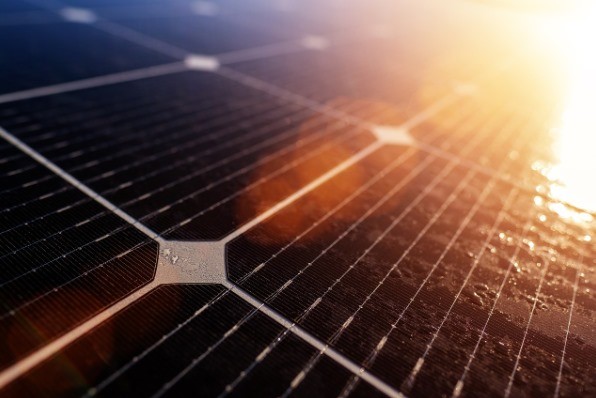Solar energy is an essential step towards a greener future. Installing solar panels can help reduce electricity bills and make your home more energy-efficient. The UK has seen a significant rise in solar panel installations due to their long-term benefits and various government incentives. Click here to learn more about how solar panels can transform your energy consumption and save money. This guide will help you understand everything about choosing solar panels, from types and costs to installation and maintenance.
Understanding Solar Panels
Solar panels are devices that convert sunlight into electricity. There are three main types: monocrystalline, polycrystalline, and thin-film. Monocrystalline panels are highly efficient and last a long time but are more expensive. Polycrystalline panels are cheaper but slightly less efficient. Thin-film panels are flexible and lightweight, making them ideal for unconventional spaces. Understanding how solar panels work and their efficiency is crucial for making the right choice. Solar panels’ efficiency depends on various factors, including the type of material used and the technology behind them.
Assessing Your Energy Needs
Before investing in solar panels, it’s essential to know your energy needs. Start by analyzing your past energy bills to calculate your average consumption. This will help you determine the size and number of solar panels you need. Understanding your energy bills and identifying peak usage times can optimize your solar panel system’s performance. The UK has varying sunlight hours depending on the region and season, so knowing your peak sunlight hours is vital for maximizing efficiency. Solar panels can significantly reduce your reliance on the grid, providing long-term savings.
Evaluating Your Property
Not all properties are suitable for solar panels. The roof’s orientation and tilt are crucial; south-facing roofs are ideal. Check for shading from trees or buildings, as they can affect performance. The roof’s condition and material also play a role; it must be strong enough to support the panels. If your roof isn’t suitable, consider ground-mounted systems or solar carports, which offer flexibility. These alternatives can be more expensive but are worth considering if you have space. Solar panels need direct sunlight to function optimally, so evaluating your property is essential.
Financial Considerations
The cost of solar panels and installation can vary widely. Monocrystalline panels are more expensive, while polycrystalline and thin-film options are cheaper. However, government incentives like the Smart Export Guarantee (SEG) and the Green Homes Grant can significantly reduce costs. Calculating your return on investment (ROI) and understanding the payback period helps in financial planning. Financing options such as solar loans, leasing, and power purchase agreements (PPAs) can make solar panels more affordable. With the right financial planning, solar panels can provide substantial savings over time.
Selecting the Right Solar Panel System
Choosing the right solar panel system involves comparing different brands and models. Look for performance metrics, warranties, and user reviews. Inverters are essential for converting solar energy into usable electricity. String inverters are common and cost-effective, while microinverters and power optimizers offer better performance in shaded conditions. Battery storage options, like lithium-ion batteries, can store excess energy for later use. This is especially useful during cloudy days or at night. The right solar panel system can ensure you get the most out of your investment.
Installation Process
Finding a qualified installer is crucial. Look for MCS certification, which ensures the installer meets industry standards. Check references and reviews to find a reputable installer. Preparing for installation involves a site assessment and obtaining necessary permits. The installation process typically takes a few days, depending on the system size and complexity. Understanding the installation timeline helps you plan accordingly. Proper installation is vital for the solar panels’ performance and longevity, so choosing a qualified installer is essential.
Maintenance and Monitoring
Solar panels require minimal maintenance. Regular cleaning and inspections can ensure optimal performance. Monitoring systems can track your solar panel’s performance and detect issues early. Many systems come with apps or online platforms for easy monitoring. Troubleshooting common issues, like reduced performance, can often be done with the help of the installer. Regular maintenance can extend the lifespan of your solar panels and ensure they continue to perform efficiently. Keeping an eye on your system’s performance can help you get the most out of your solar panels.
Legal and Regulatory Considerations
Before installing solar panels, check if you need planning permissions. Most domestic installations don’t require them, but it’s essential to verify. Building regulations must be followed to ensure the installation is safe and compliant. Connecting to the grid involves paperwork and coordination with your energy supplier. Understanding these legal and regulatory considerations can prevent issues and delays. Being informed about the legal aspects ensures a smooth installation process and compliance with local laws. Solar panels can offer many benefits, but it’s essential to follow regulations.
Future of Solar Energy in the UK
The future of solar energy in the UK looks promising. Technological advancements are making solar panels more efficient and affordable. Government policies and market trends support the growth of renewable energy. However, challenges like storage solutions and grid integration need addressing. Innovations in solar technology and supportive policies are driving the solar panel market forward. The future holds exciting opportunities for both homeowners and businesses to benefit from solar energy. Staying updated on trends can help you make the most of your solar panel investment.
Final Thoughts
Choosing solar panels is a significant decision that can lead to substantial benefits. From understanding the types of solar panels to evaluating your property and financial considerations, this guide covers all aspects. By installing solar panels, you can reduce your energy bills, contribute to a greener environment, and increase your property value. It’s essential to follow legal and regulatory requirements and choose a qualified installer for the best results. Solar panels offer a sustainable energy solution that benefits both the environment and your finances. For more information and resources, explore further to make an informed decision about solar panels.
